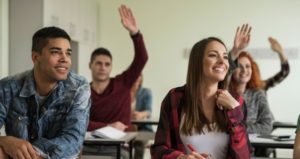
My Students Don’t Like Group Work
Students don’t always like working in groups. Ann Taylor, an associate professor of chemistry at Wabash College, had a class that was particularly vocal in their opposition. She asked for their top 10 reasons why students don’t want to work in groups and they offered










